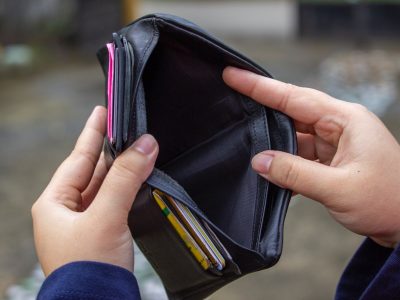Last week, the Centers for Disease Control and Prevention made a surprising announcement. It issued a temporary halt on all evictions in the U.S. for those making less than $100,000 a year to prevent the spread of COVID-19. They argue forcing people out of their homes and into shelters or homes of family members will likely increase the spread of the virus.
Tenants must prove that they are not able to pay their rent due to the pandemic for the rule to go into effect for them, but legal experts say the CDC may not have the authority to impose such a restriction.
So, how can a government agency that’s focused on fighting the spread of disease freeze evictions across the country? Let’s find out.
The Public Health Service Act
The CDC doesn’t normally have the authority to mandate how landlords manage their properties. However, under the authority of the U.S. Department of Health and Human Services, the CDC issued a temporary halt on evictions using the Public Health Service Act of 1944. The order is effective September 4, 2020 through December 31, 2020.
According to the HHS website, the Public Health Service Act “forms the foundation of HHS’ legal authority for responding to public health emergencies.” Among other things, this includes the authority to “declare a public health emergency (PHE) and take such actions as may be appropriate to respond to the PHE consistent with existing authorities; to assist states in meeting health emergencies; [and] to control communicable diseases.”
From a public health perspective, forcing people out of their homes could be a recipe for disaster. Homeless shelters and community centers would likely be overrun with those seeking temporary housing. Others may turn to friends and family members for help, increasing their risk of exposure. Quarantining is nearly impossible when you don’t have a place to live.
Congress passed a similar moratorium on evictions earlier this year, but that order expired at the end of July. According to the latest analysis of U.S. Census data, 30–40 million people in America could face eviction over the next several months.
Legal Challenges Await
The Public Health Service Act may give the CDC the authority to prevent the spread of the diseases, but the order issued last week doesn’t set aside any money for landlords. It’s also unclear what will happen when the moratorium expires at the end of the year. The order does not absolve tenants of paying their rent. If a person can’t pay their rent in August, how will they pay four months of back-rent at the end of the year?
Without rent coming in the door, property owners and landlords will likely challenge the order in court over the next few months. Congress will need to provide financial aid to renters or landlords for these legal issues to subside. Whatever the court decides could have a major bearing on future legislation.
The order was met with a range of reactions from the legal community. Tenant advocates hailed the decision as a victory for public safety and fair housing laws. Others were skeptical of the CDC’s ability to halt evictions across the country.
What Could This Mean for the Nation?
If the court upholds the CDC’s eviction ban, it will show that the government has the law on its side when faced with a public health emergency. State and federal agencies will likely use this case as precedent when enforcing various safety guidelines, such as wearing face masks, limiting large gatherings, and closing schools and business, especially if we see a change in leadership after the election this fall.
If the court strikes down the eviction ban, it will show that the government has limited authority amid public health emergencies. We may see similar lawsuits pop up in court contesting all sorts of local, state, and federal safety guidelines. The government may have to curtail its response to the pandemic if the law is not on its side.
The outcome could shape the future of the nation’s response to the pandemic. No one wants to see large groups of people, including families, forced out onto the streets, but landlords need to collect rent in the meantime.

















